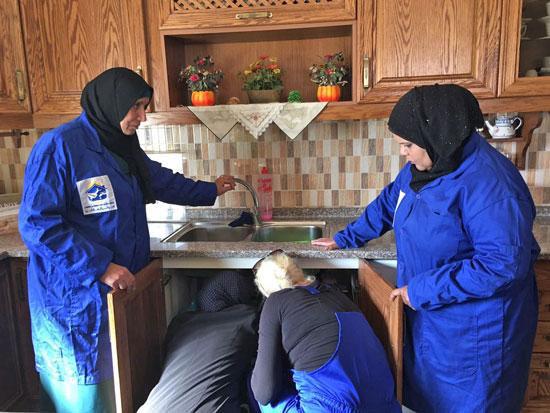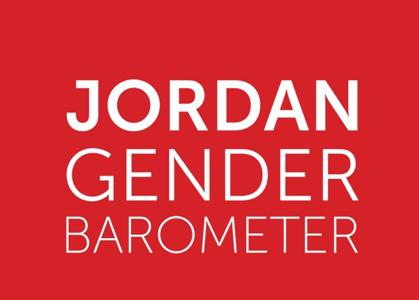You are here
Most women’s desire to work ‘impeded by male family members’
By Maram Kayed - Nov 19,2018 - Last updated at Nov 19,2018

In this undated file photo, female plumbers are seen working to fix water pipes (JT file photo)
AMMAN — Sixty per cent of unemployed women in the Kingdom have the desire to work, but male-interference in their decisions was a major factor hindering or limiting their job hunt, a recent study by the World Bank (WB) found.
According to the study, only 3 per cent of women are opposed to their gender working, which the study stated as a result of a “positive attitude towards women empowerment”.
However, Jordan was still listed amongst the countries with lowest rates of female economic participation, standing at around 17 per cent. Furthermore, 44 per cent of employed women, and 90 per cent of unemployed women do not have a bank account of their own, the WB said.
The study attributed the low percentages, which they said signaled “weak participation and influence” in the labour and financial sectors, to the interference of male family members in women’s decisions. Whether a husband, father or brother, 90 per cent of women who took the study’s survey said that one of their male family members had a “decisive say” in her work and financial affairs.
Specifically, a husband demanding that his wife refrain from working was the reason cited behind the unemployment of 19 per cent out of the total 60 per cent of respondents who said they wished to work.
“My husband told me he did not want me to work on the first day I met him. When I said I help my parents with JD80 a month through my work, he said he will give them a JD100 instead, but I have to stay at home,” said Bayan Zubaidi, a mother of two.
Some male members questioned were not opposed to the notion of their female family members working, but did however mind her working in a “mixed-gender” workplace. Approximately 60 per cent of men said that they were against their wives working in a work place where males were present, 44 per cent of which stated that “she might be harassed” as a reason.
“Is it not hypocritical that these men do not mind working with women, but are against their wives doing so? Do they not trust their life partners, or is just the issue of ‘it is okay for me, but not okay for you?’” asked Mariam Afghani, a Women Studies student.
Yousef Masri, a husband and father, said that he thinks “the lack of clear and strict laws that protect women from sexual harassment is a valid reason to worry over one’s wife, sister and daughter”.
“It is not the idea of working with men that most are against. It is the idea of working with men who have no laws to monitor their behaviour that is the problem,” he added.
Apart from the issue of male interference, the study cited other reasons for unemployment, such as the absence of efficient public transport, the choice of some women to stay at home during pregnancy or after having children, and the limited number of jobs available in the market.
“I used to work at a call centre before the birth of my first child, but now, I have trouble returning to work because my husband and I cannot afford day care and we also do not want for him to be a burden on our parents,” said Sondos Ahmed, a mother of one.
“We cannot deny that unemployment is a problem in Jordan for both men and women, but women undoubtedly have more problems standing in their way, especially since many public and private jobs lack proper daycare or do not have one at all,” concluded Zein Ammari, a teacher and women's rights activist.
Related Articles
AMMAN — Jordan's population reached approximately 10.309 million at the end of 2018, 6.768 million of whom are above age 15 and 3.126 millio
AMMAN — Economic concerns are a major issue for Jordanian women, with unemployment and poverty being most reported, according to a rec
AMMAN — A detailed analysis conducted by the Higher Population Council (HPC) in partnership with the United Nations Population Fund indicate


















